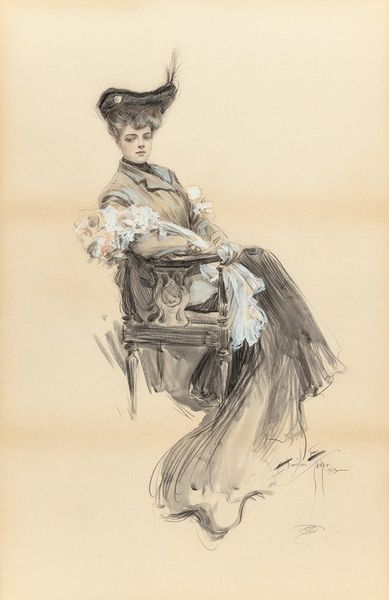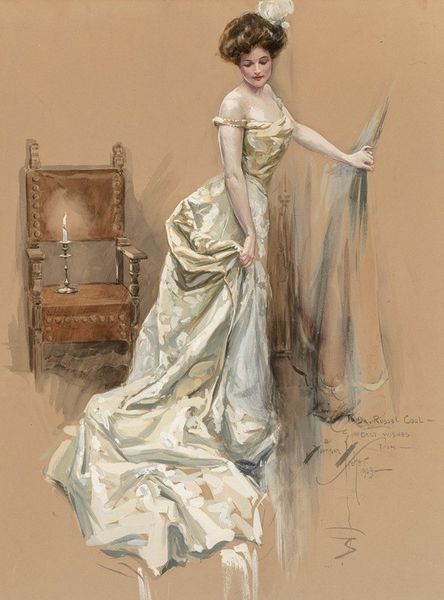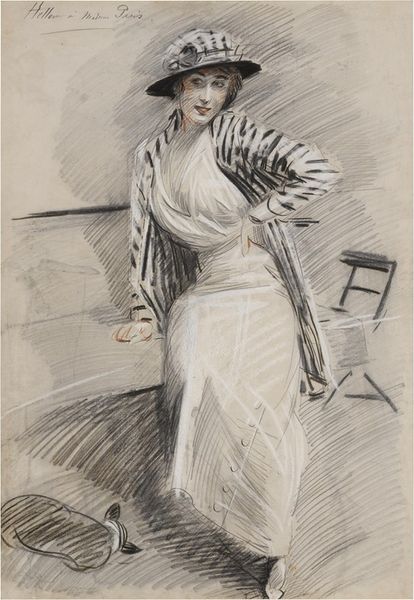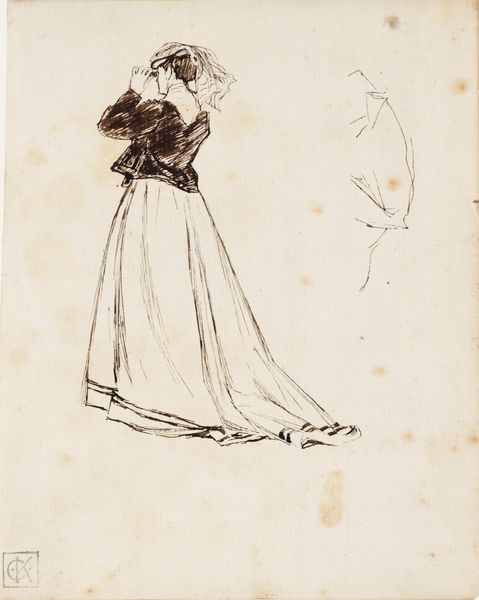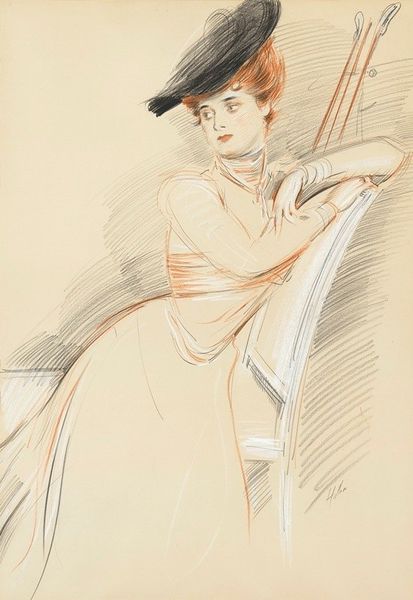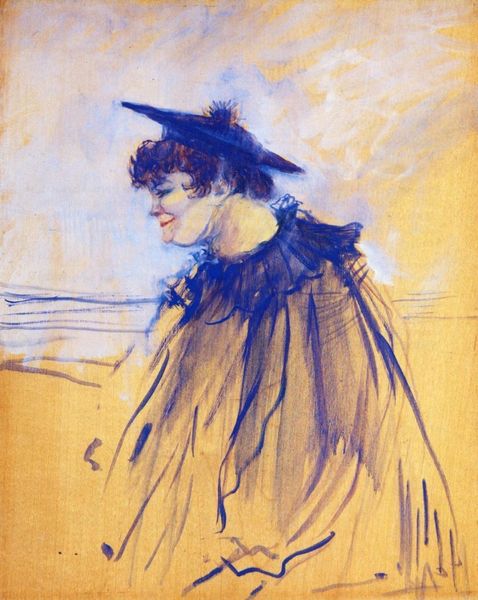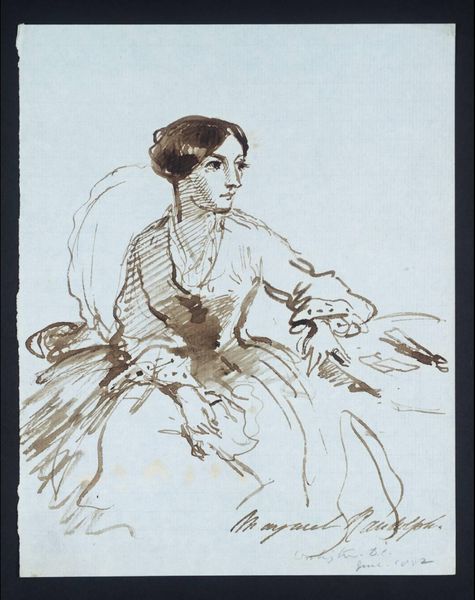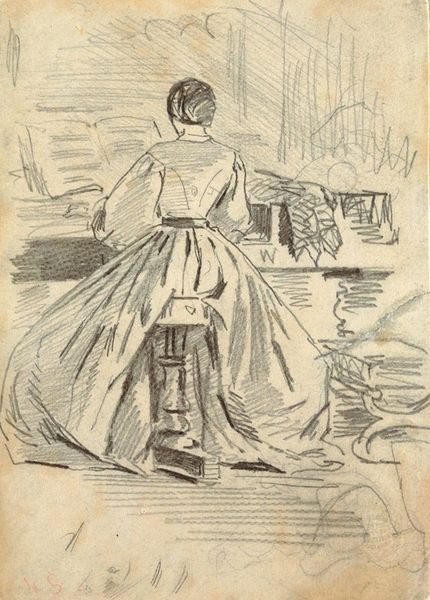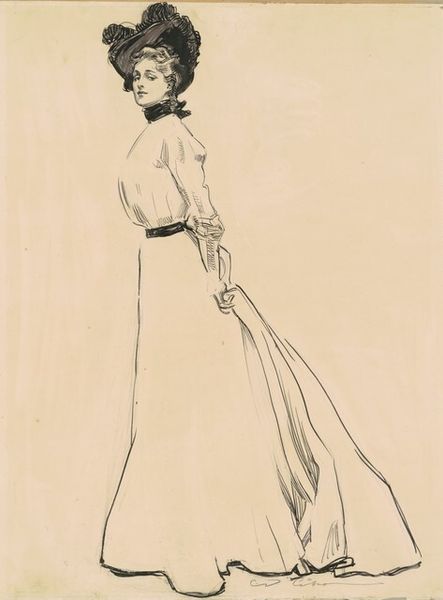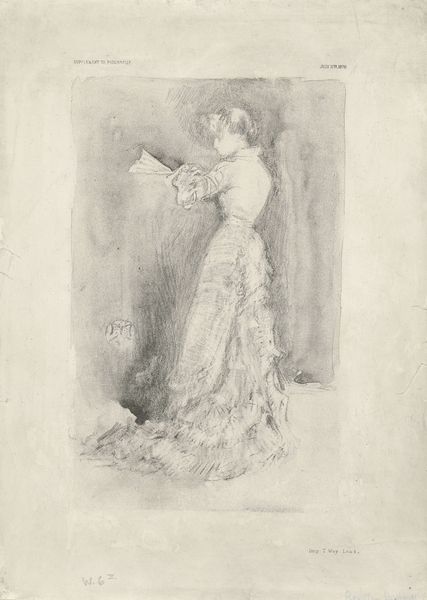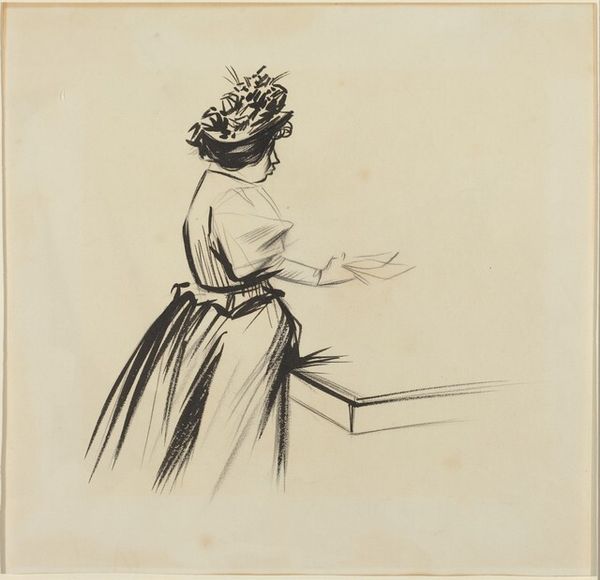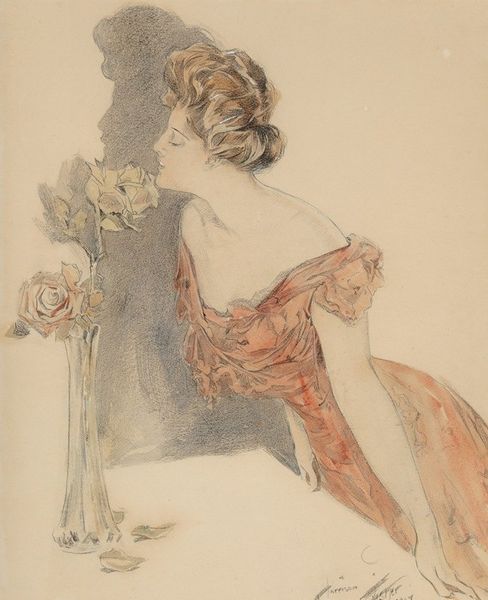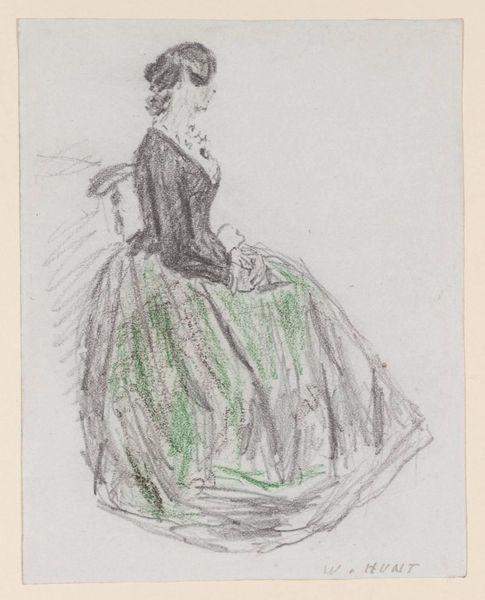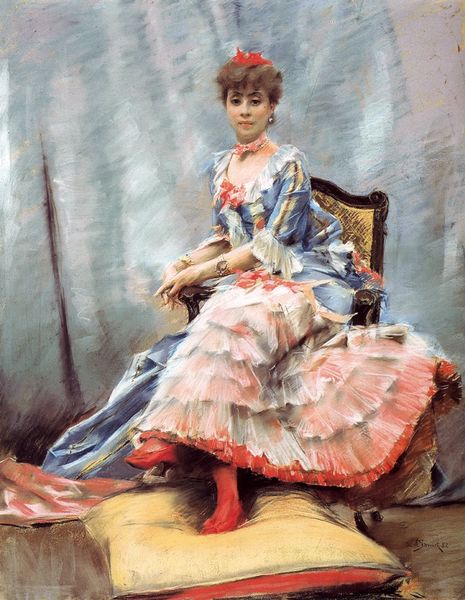
painting, watercolor
#
portrait
#
painting
#
impressionism
#
figuration
#
watercolor
#
intimism
#
genre-painting
#
watercolor
Dimensions: 50.8 x 60.96 cm
Copyright: Public domain
Curator: William Merritt Chase's "Seated Woman in Yellow Striped Gown," circa 1885, is an evocative watercolor that truly captures a moment. What do you make of it at first glance? Editor: A fleeting impression. The watercolor application lends it an unfinished feel, as if she might just get up and walk away any moment. It feels very 'snapshot'—posed but also unposed, in a way. Curator: I see what you mean. It's interesting to consider Chase's choice of watercolor, especially compared to his more celebrated oils. This medium allows for a certain translucence that softens the presence of the sitter, giving it a rather personal touch. What I adore is the way the light seems to both illuminate the subject while obscuring some elements in sketch. Editor: Indeed. The sketchy background suggests the limitations inherent in watercolor; perhaps Chase was more invested in accurately rendering the fabric, which seems painstakingly executed compared to the ephemeral surroundings. And let’s remember the production chain: everything from the sourcing of the pigments, the specific sizing of the paper for watercolor— each a considered decision! Curator: Absolutely, I often wonder what the sitter thought. Her dress, I suspect, took many hours to produce as well; what sort of dialogue did they have? It almost feels intimate. Like a glimpse into Chase’s studio. There is something incredibly immediate in the portrait's nature—it has an ‘instant film’ quality of modernity to it. Editor: Thinking about those fabrics further – were they machine-made, or painstakingly hand-stitched? The lace trim, the yellow dye – each element points to specific industrial practices of the era, as well as an intersection of art, craft, and commerce, that Chase knowingly engaged with. Curator: It’s amazing how he captures this sitter's relaxed composure amid the social and material forces at play. In the very quietness of her repose there is some very telling emotion—in the curl of her hair, or the weight she allows on that poor little chair. The lack of finish actually conveys feeling. It implies this is a place, and moment in time, which Chase understood with empathy. Editor: True; the supposed 'lack of finish' in what you call her weight allows an insight to these historical practices. Thanks for drawing my attention back to this – seeing all the effort behind these details really changes my reading of it. Curator: And seeing your close attention to the materials opens my eyes even wider. Thanks!
Comments
No comments
Be the first to comment and join the conversation on the ultimate creative platform.
